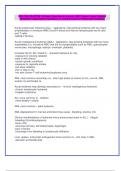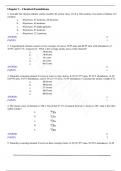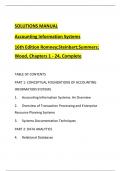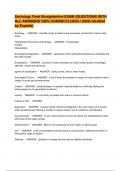Exam (elaborations)
NSG 530 CHAPTER 23 Exam | Questions & Answers (100 %Score) Latest Updated 2024/2025 Comprehensive Questions A+ Graded Answers | With Expert Solutions
- Course
- Institution
NSG 530 CHAPTER 23 Exam | Questions & Answers (100 %Score) Latest Updated 2024/2025 Comprehensive Questions A+ Graded Answers | With Expert Solutions
[Show more]












